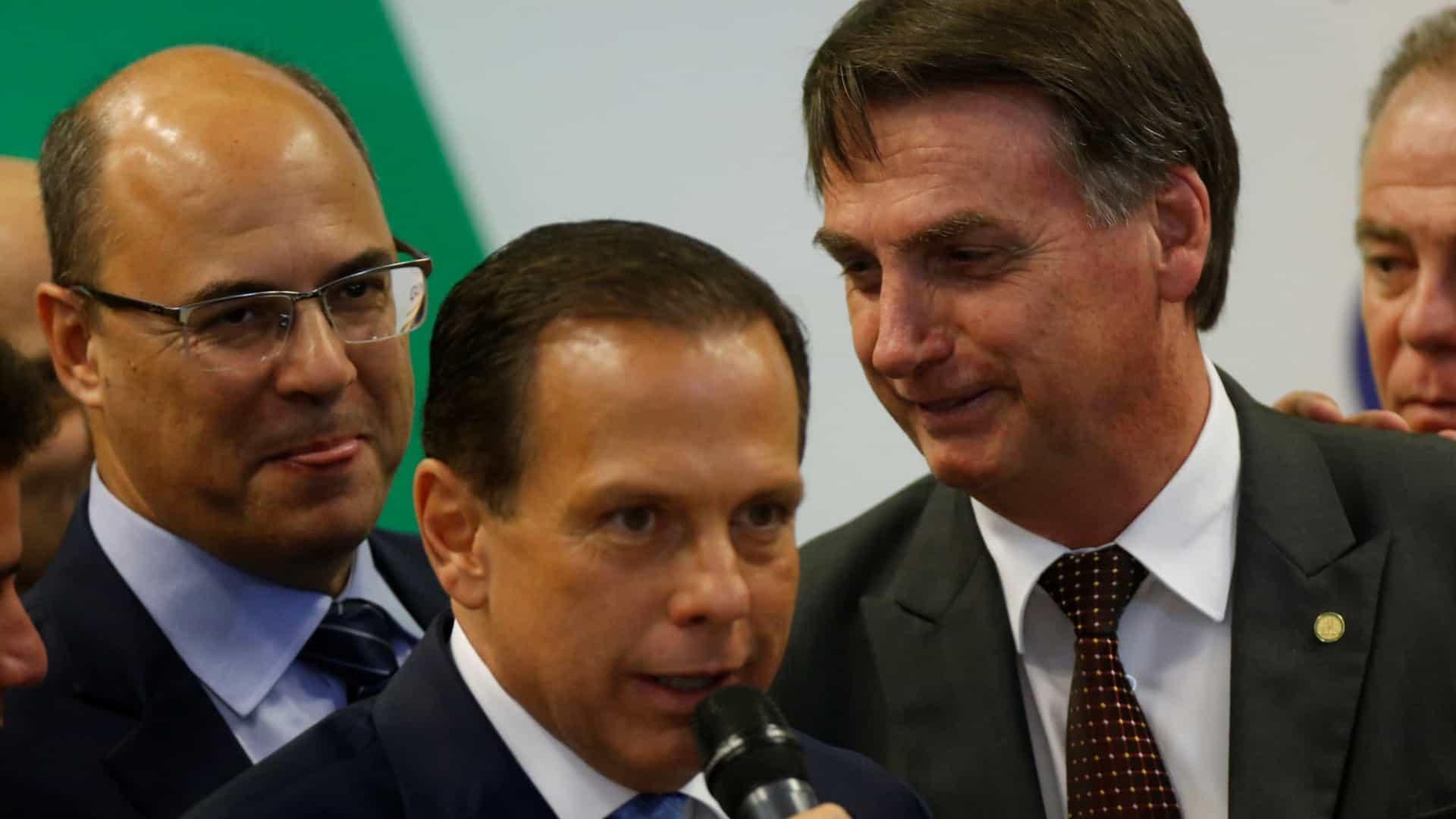RIO DE JANEIRO, BRAZIL – Eight out of ten Brazilians support the enforcement of isolation measures as a means of trying to contain the coronavirus, such as the suspension of classes and restrictions on people’s movement.
The data is from a survey by the consulting firm Atlas Político, made amid the clash between President Jair Bolsonaro, who opposed such measures, and the prominent governors who have enforced them in their states.

The survey also shows that the bickering between the two sides has already had an impact on the politicians’ image: while the rejection of the president increased last week, that of São Paulo governor João Doria, who publicly opposed Bolsonaro’s position, decreased significantly, although it remains high.
The approval of the Chamber’s president, Rodrigo Maia, another advocate of isolation, has also increased, as has that of the Health Minister, Luiz Henrique Mandetta, who has been the federal government’s face of the crisis.
The survey was conducted between March 23rd and 25th, that is, it gathered feedback on Bolsonaro’s official statement against the quarantine last Tuesday, March 24th, and to the position of the governors on Wednesday, March 25th.
A total of 2,000 people were interviewed by means of random online surveys using an algorithm. The error margin is two percentage points, plus or minus, and the reliability level is 95 percent.
The data show that the fear of coronavirus reaches 75 percent of respondents: 39 percent say they fear for their lives, while 36 percent are afraid of getting sick. In addition, 84 percent say they fear losing a friend or family member to the infection.
For seven out of ten respondents, what concerns them most in this crisis is the death of people and not the economic impact it may generate, a more important factor for 21 percent.
Nevertheless, 61 percent of Brazilians believe that the country will go through an economic recession this year and 48 percent say that their monthly income is already decreasing.
In his speech on Tuesday, Jair Bolsonaro sparked controversy by stating that the coronavirus was just a “flu” and advocating that the country should return to “normality”. “A few state and municipal authorities should abandon their “scorched earth” concept imposing bans on transportation, the closure of trade and mass confinement,” he said.
The position, contrary to World Health Organization (WHO) recommendations and the efforts of the main countries affected by the disease, triggered outrage among the political class and the population, who reacted with a new day of pot-banging protests at their windows.
“So far, politicians who have stood up for isolation measures seem to have improved in terms of image. This is quite clear in the case of João Doria, whose positive image has greatly improved,” points out political scientist Andrei Roman, developer of the Atlas Político.
A week ago, 74 percent said they had a negative image of Doria; now that is the opinion of 54 percent. While the last survey, conducted on March 18th, also showed that 52 percent of people had a negative image of Bolsonaro, the current one showed that this rejection has increased to 57 percent.
“If the isolation measures [taken by some states] yields results, Bolsonaro may become even less popular. But that may have a passing effect if the approval of the isolation measures begins to drop. This could happen as a result of economic difficulties, particularly if the number of deaths rises less than expected,” Roman says.
Bolsonaro’s stance against quarantine measures seeks to shield his government, which last year recorded lower-than-expected economic growth, from the economic consequences that the shutdown of services will entail.
He has accused political rivals, such as Doria, of wanting to promote themselves politically through the crisis, and has stressed that a worsening of the economy would be the end of his government. His speech on a national broadcast was tailored to his most radical audience that operates on social media. And although it had a negative impact on his popularity, it worked for his intended purpose: hashtags like ‘Bora Trabalhar’ (Let’s go to work) and ‘Bolsonaro tem razão’ (Bolsonaro is right) won the trend topics on Twitter.
And his shock troops ultimately viralized a news story published by EL PAÍS Brasil that showed Italy rethinking its more restrictive measures for fear of stifling the economy. However, the article dated back to late February, when the country had only 17 dead and believed that the epidemic would be circumvented.
A report by Gil Alessi, published on Wednesday, showed that since then, seeing the death toll rise exponentially a few days later (now over 7,500), the Mediterranean country changed its mind and extended quarantine to the entire country, rather than limiting it to a few locations.

